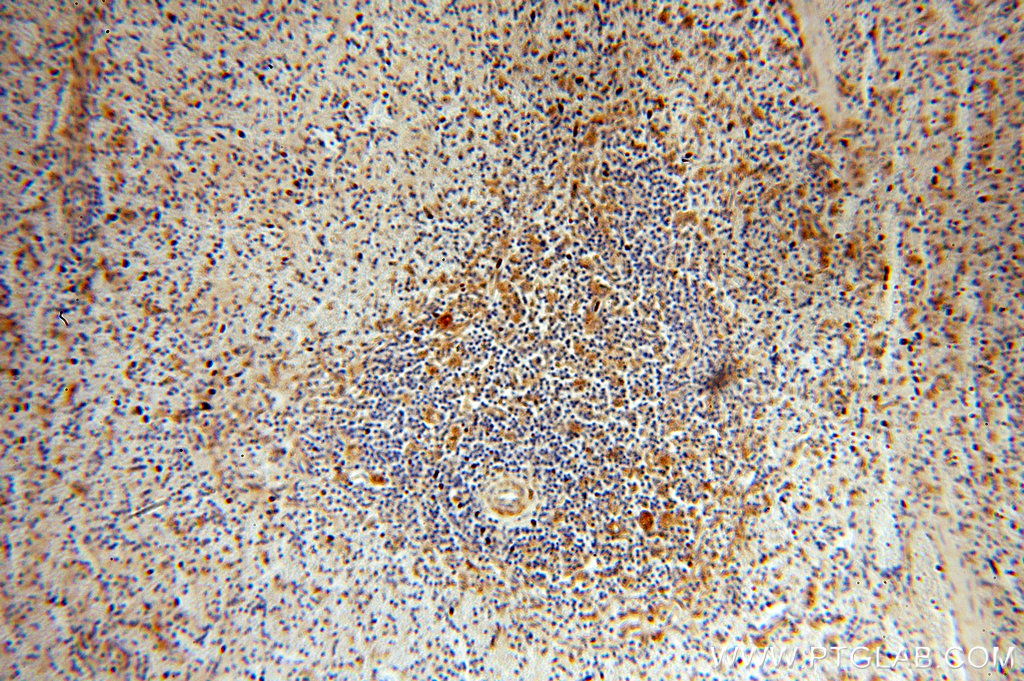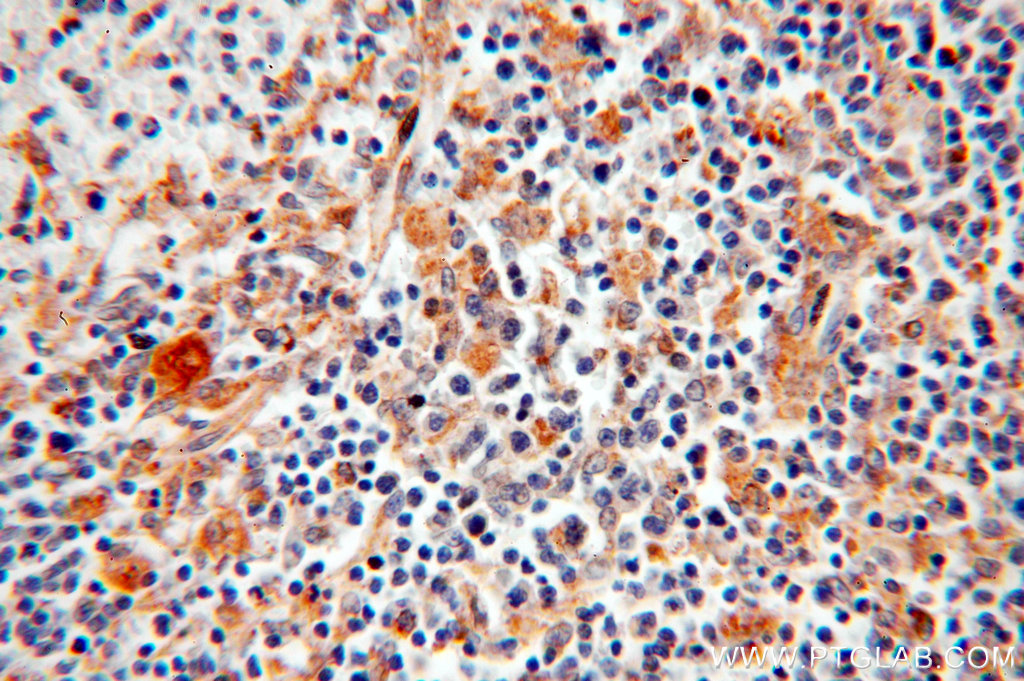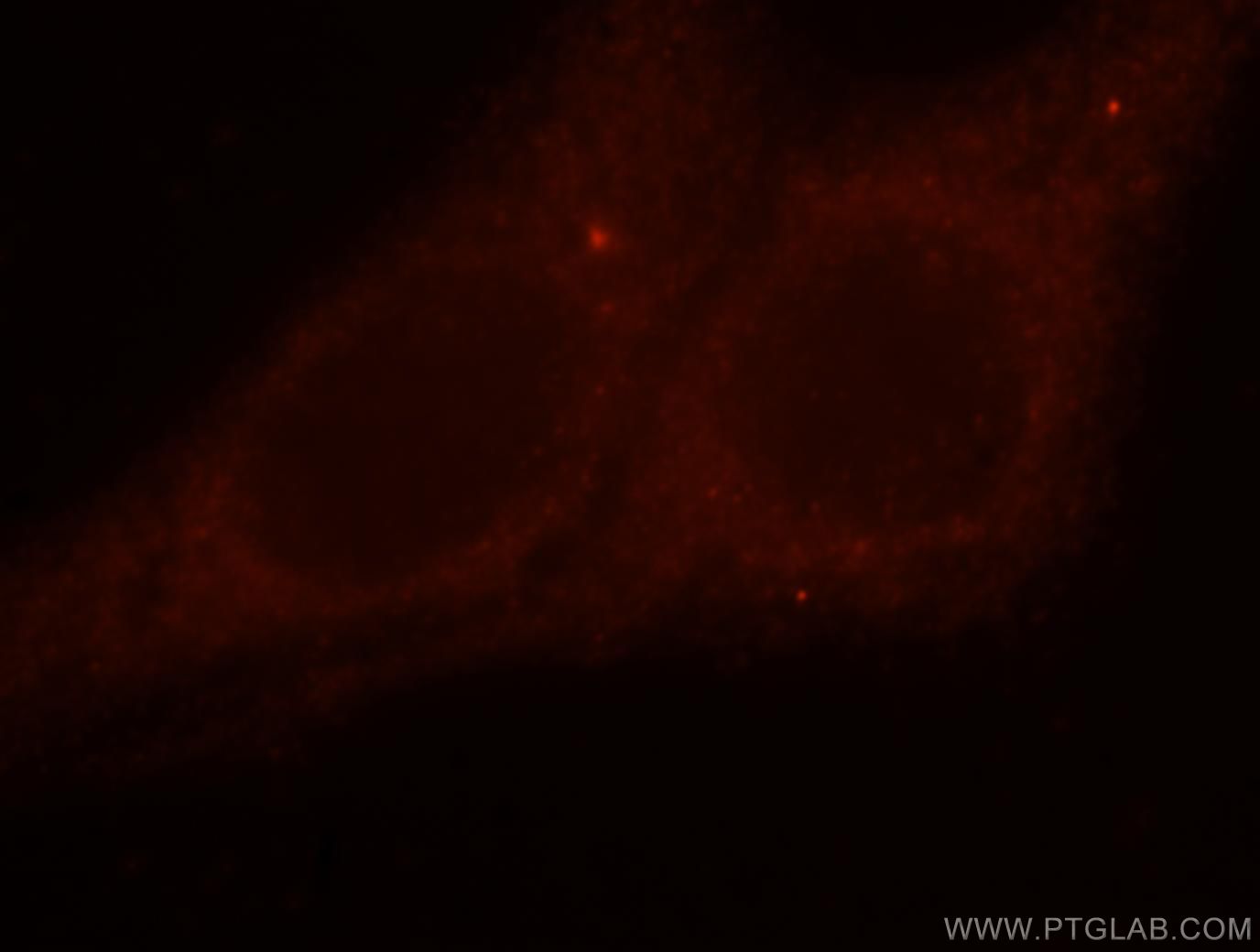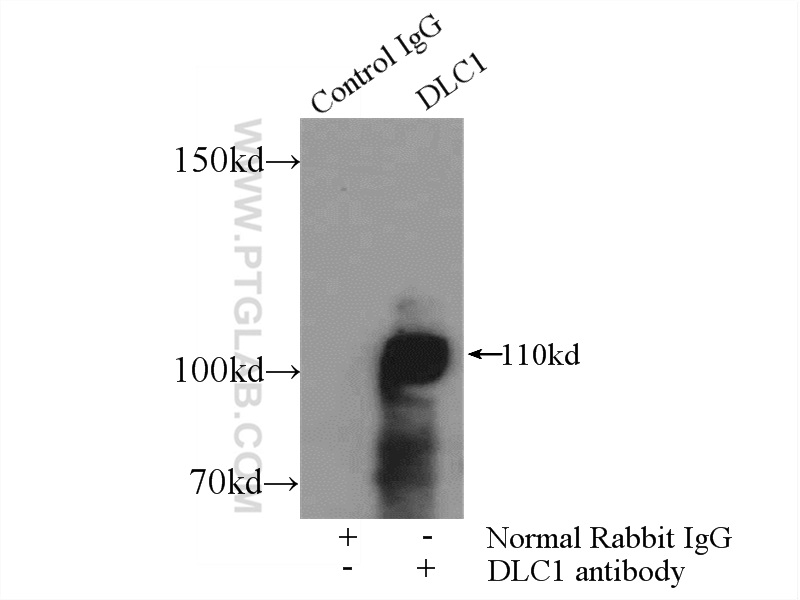验证数据展示
经过测试的应用
| Positive IP detected in | mouse lung tissue |
| Positive IHC detected in | human spleen tissue, human liver tissue Note: suggested antigen retrieval with TE buffer pH 9.0; (*) Alternatively, antigen retrieval may be performed with citrate buffer pH 6.0 |
| Positive IF/ICC detected in | HepG2 cells |
推荐稀释比
| 应用 | 推荐稀释比 |
|---|---|
| Immunoprecipitation (IP) | IP : 0.5-4.0 ug for 1.0-3.0 mg of total protein lysate |
| Immunohistochemistry (IHC) | IHC : 1:20-1:200 |
| Immunofluorescence (IF)/ICC | IF/ICC : 1:10-1:100 |
| It is recommended that this reagent should be titrated in each testing system to obtain optimal results. | |
| Sample-dependent, Check data in validation data gallery. | |
产品信息
15460-1-AP targets DLC1 in WB, IHC, IF/ICC, IP, ELISA applications and shows reactivity with human, mouse, rat samples.
| 经测试应用 | IHC, IF/ICC, IP, ELISA Application Description |
| 文献引用应用 | WB, IHC, IF |
| 经测试反应性 | human, mouse, rat |
| 文献引用反应性 | human, rat |
| 免疫原 |
CatNo: Ag7732 Product name: Recombinant human DLC1 protein Source: e coli.-derived, PET28a Tag: 6*His Domain: 1179-1528 aa of BC054511 Sequence: KDQRLQAIKAAIMLLPDENREVLQTLLYFLSDVTAAVKENQMTPTNLAVCLAPSLFHLNTLKRENSSPRVMQRKQSLGKPDQKDLNENLAATQGLAHMIAECKKLFQVPEEMSRCRNSYTEQELKPLTLEALGHLGNDDSADYQHFLQDCVDGLFKEVKEKFKGWVSYSTSEQAELSYKKVSEGPPLRLWRSVIEVPAVPEEILKRLLKEQHLWDVDLLDSKVIEILDSQTEIYQYVQNSMAPHPARDYVVLRTWRTNLPKGACALLLTSVDHDRAPVVGVRVNVLLSRYLIEPCGPGKSKLTYMCRVDLRGHMPEWYTKSFGHLCAAEVVKIRDSFSNQNTETKDTKSR 种属同源性预测 |
| 宿主/亚型 | Rabbit / IgG |
| 抗体类别 | Polyclonal |
| 产品类型 | Antibody |
| 全称 | deleted in liver cancer 1 |
| 别名 | HP protein, HP, DLC-1, DLC 1, deleted in liver cancer 1 |
| 计算分子量 | 171 kDa |
| GenBank蛋白编号 | BC054511 |
| 基因名称 | DLC1 |
| Gene ID (NCBI) | 10395 |
| RRID | AB_2246077 |
| 偶联类型 | Unconjugated |
| 形式 | Liquid |
| 纯化方式 | Antigen affinity purification |
| UNIPROT ID | Q96QB1 |
| 储存缓冲液 | PBS with 0.02% sodium azide and 50% glycerol, pH 7.3. |
| 储存条件 | Store at -20°C. Stable for one year after shipment. Aliquoting is unnecessary for -20oC storage. |
实验方案
| Product Specific Protocols | |
|---|---|
| IF protocol for DLC1 antibody 15460-1-AP | Download protocol |
| IHC protocol for DLC1 antibody 15460-1-AP | Download protocol |
| IP protocol for DLC1 antibody 15460-1-AP | Download protocol |
| Standard Protocols | |
|---|---|
| Click here to view our Standard Protocols |
发表文章
| Species | Application | Title |
|---|---|---|
Biomaterials Stiffness assisted cell-matrix remodeling trigger 3D mechanotransduction regulatory programs | ||
Cancer Res Mutant KRAS and CK2 Cooperatively Stimulate SLC16A3 Activity to Drive Intrahepatic Cholangiocarcinoma Progression | ||







